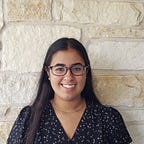WSSP Session 1 — Intro to The Welch Foundation
Recently, I was selected into the Welch Summer Scholar Program (WSSP), a competitive program sponsored by the Robert A. Welch Foundation aiming to provide Texas high school students with unique opportunities to participate in chemistry research. This year, the WSSP has featured world-class faculty researchers in different fields of chemistry from UT Austin, UT Dallas, Texas Tech University, and the University of Houston.
The first session was on June 9th. At this session, Dr. Lauren Webb, UT Austin, introduced the program. Dr. Adam Kuspa, the president of the Robert A. Welch Foundation, shared a few words about The Welch Foundation and its role at the frontiers of chemistry. As a previous Professor, Chair of Biochemistry and Molecular Biology, Graduate School Dean, Senior Vice President, and Dean of Research at Baylor College of Medicine, Dr. Kuspa shared his valuable experience conducting research and passed on words of advice. One fun fact that I found interesting was that Dr. Kuspa had the opportunity to work at the Human Genome Sequencing Center at Baylor! Then, Dr. Anthony Cozzolino, Texas Tech University, gave a talk about inorganic (supra)molecular chemistry and the research his lab has done. Dr. Cozzolino received his Hon. BSc. and Ph.D. from McMaster University during which he studied the supramolecular chemistry of tellurium-containing ring systems. He was an NSERC Postdoctoral Fellow from 2009–2011 at MIT and researched low-valent early transition metal coordination chemistry as well as ion exchange in metal-organic frameworks. In the Department of Chemistry and Biochemistry at TTU, he has studied the supramolecular chemistry of antimony and bismuth and how this relates to the self-assembly of reversed bilayer membranes and inorganic analogs of the Watson-Crick base pairs A, T, C, G. More work about Dr. Cozzolino’s research will come in the following blog post!
Here are details that Dr. Kuspa highlighted! Robert A. Welch, a Texas investor, was a benefactor of The Welch Foundation which was established in 1954. This foundation funds research in the state of Texas, provides grants, and leads mentoring programs to give students and trainees a chance to do fundamental chemical research in professional laboratories. Robert Welch came to Houston in the 1880s and experienced firsthand the growth of the chemical industry. When he was thinking about establishing a foundation, chemistry was in its golden age. With the emergence of synthetic polymers, the frontiers of chemistry we’re expanding rapidly. Thus, Welch set on supporting chemistry through his foundation. Originally, he ruminated about supporting cancer research, but living in the 1940s, he thought it would be solved in the next 10–20 years as this was the time when the first chemotherapeutic regimen was being developed for cancer and some cancers were being cured. Welch was drawn to basic science as he strongly believed that the discovery and research possible by basic research would keep the US at the forefront of the economy and improve the human condition. Welch thought that while you can’t plan to make a discovery, you can find brilliant, curious minds who will make discoveries to better the human condition. Time and time again, if you allow brilliant people to pursue their curiosity and explore the fundamental aspects of nature, brilliant things will happen.
The 1940s, in particular, were an interesting time period in the history of science: there was significant discussion about how to transform the public-private partnerships that brought forward the goals of winning World War 2 into a peacetime effort. DIscourse surrounded how to sustain projects such as the Manhattan Effort (atomic bonds) and the Rad Labs at MIT (radiation) in the civilian world going forward. Robert Welch knew about this, and he thought his foundation would be best put forward towards that purpose. There was no federal funding for basic research until the 1950s. This was a new idea, and Welch was at the forefront of this effort.
Welch was thoughtful in designing this foundation as in his will, he allowed for the possibility that the mission of the Foundation could change after 10 years should it be the case if chemistry research was no longer useful. Because of the way we thought about chemistry in the 1950s, a lot of the problems in chemistry are largely solved. We are able to successfully synthesize organic molecules; but despite this, chemists keep finding new ideas to discover and various subfields such as nanoscience, advanced materials, quantum computing, and advanced physics. The best labs continue to strive to make molecules in a sustainable way with a cheap, non-toxic starting material, with low toxicity, catalysts, etc. Findings are advancing for plastics with polymers that degrade spontaneously rather than stay sound and degrade in the environment. There are more problems and subfields than just solving the issue of organic synthesis. The grand portfolio has changed since the 1950s. 65 years ago, the work that was supported was in synthetic organic chemistry. Now, 50% percent of grants are in the broad area of biochemistry: ironically the biochemistry of cancer (Welch would be surprised!). In all, although the focus on basic chemical research and its allies has stayed the same. The composition of the research projects that are supported by the Welch Foundation has changed over the last 65 years
After this introduction given by Dr. Adam Kuspa, Dr. Anthony Cozzolino gave a presentation about the Cozzolino Research Group’s work on inorganic (supra)molecular materials. More on this is in the next blog post!
